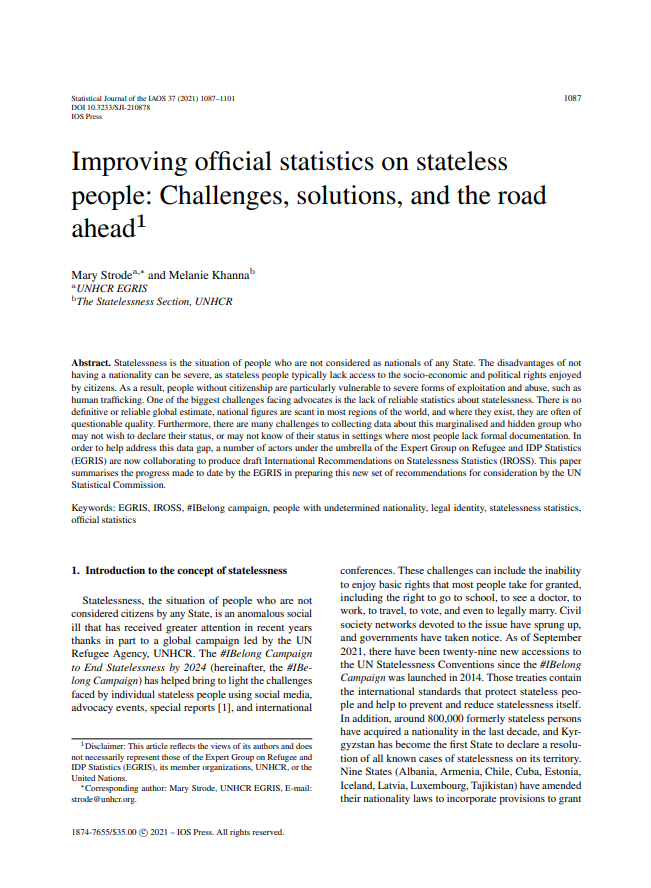Abstract
Statelessness is the situation of people who are not considered as nationals of any State. The disadvantages of not having a nationality can be severe, as stateless people typically lack access to the socio-economic and political rights enjoyed by citizens. As a result, people without citizenship are particularly vulnerable to severe forms of exploitation and abuse, such as human trafficking. One of the biggest challenges facing advocates is the lack of reliable statistics about statelessness. There is no definitive or reliable global estimate, national figures are scant in most regions of the world, and where they exist, they are often of questionable quality.
Furthermore, there are many challenges to collecting data about this marginalised and hidden group who may not wish to declare their status, or may not know of their status in settings where most people lack formal documentation. In order to help address this data gap, a number of actors under the umbrella of the Expert Group on Refugee and IDP Statistics (EGRIS) are now collaborating to produce draft International Recommendations on Statelessness Statistics (IROSS). This paper summarises the progress made to date by the EGRIS in preparing this new set of recommendations for consideration by the UN Statistical Commission.
Strode, M., & Khanna, M. (2021). Improving official statistics on stateless people: Challenges, solutions, and the road ahead. Statistical Journal of the IAOS, 37(4), 1087–1101. https://doi.org/10.3233/sji-210878

